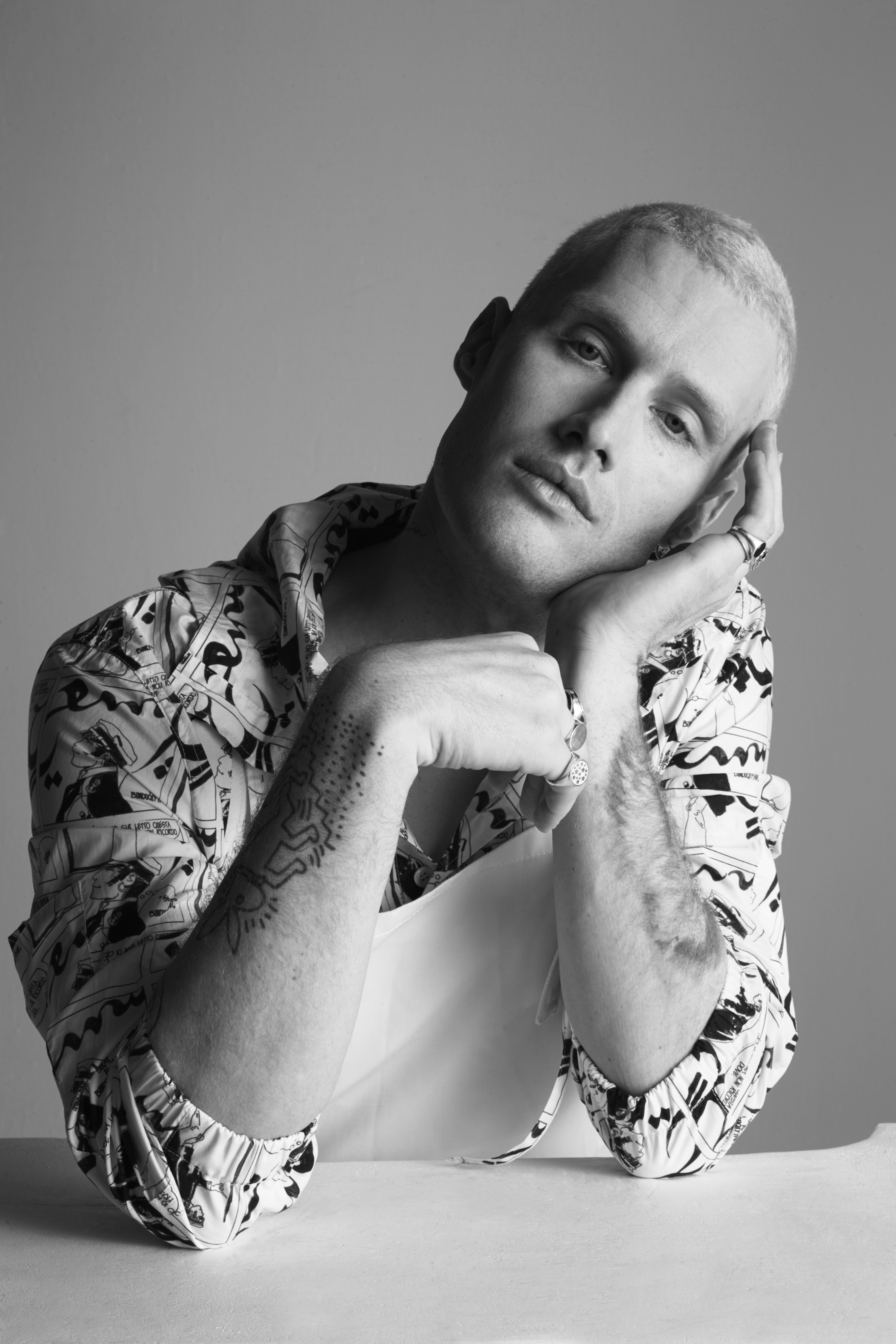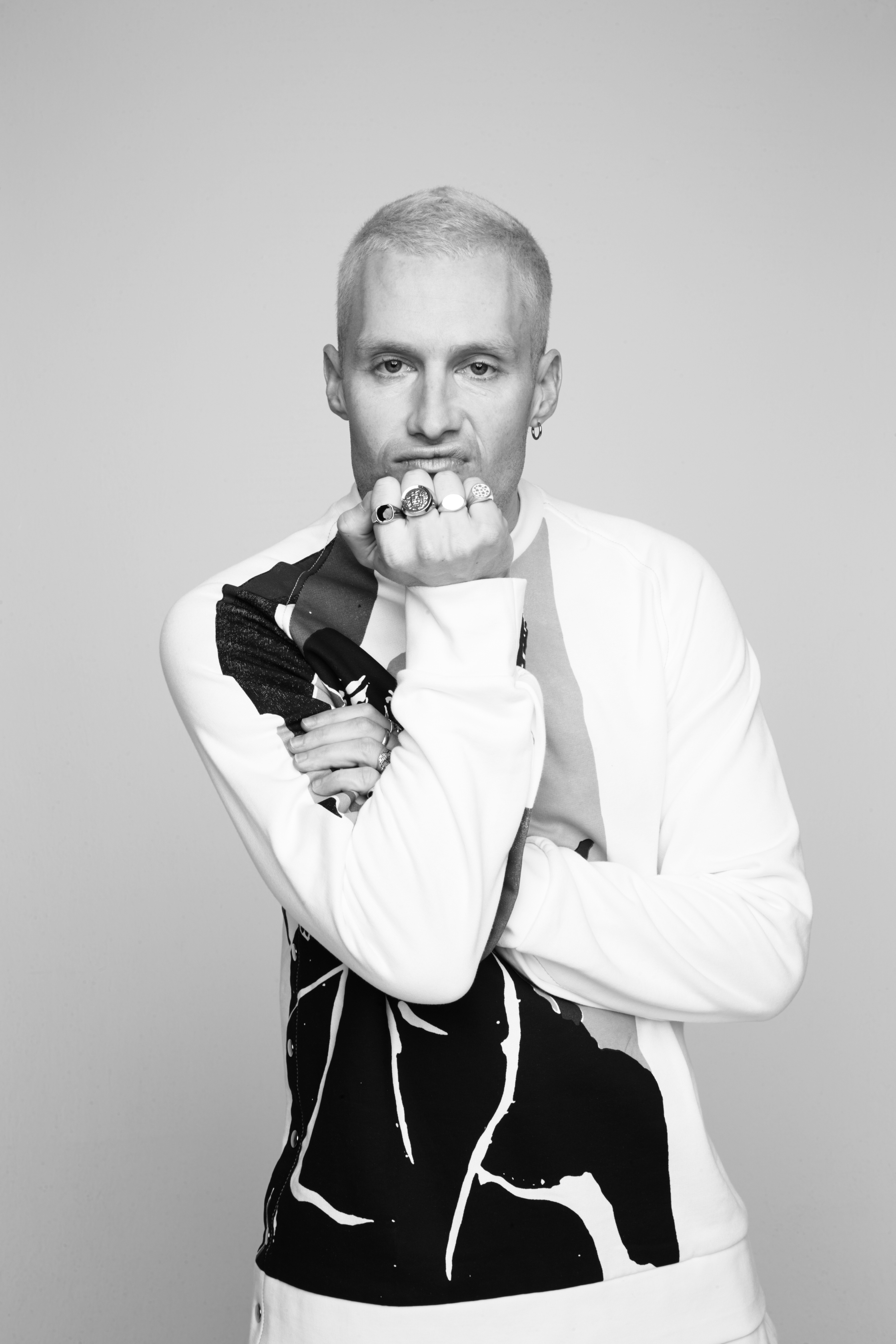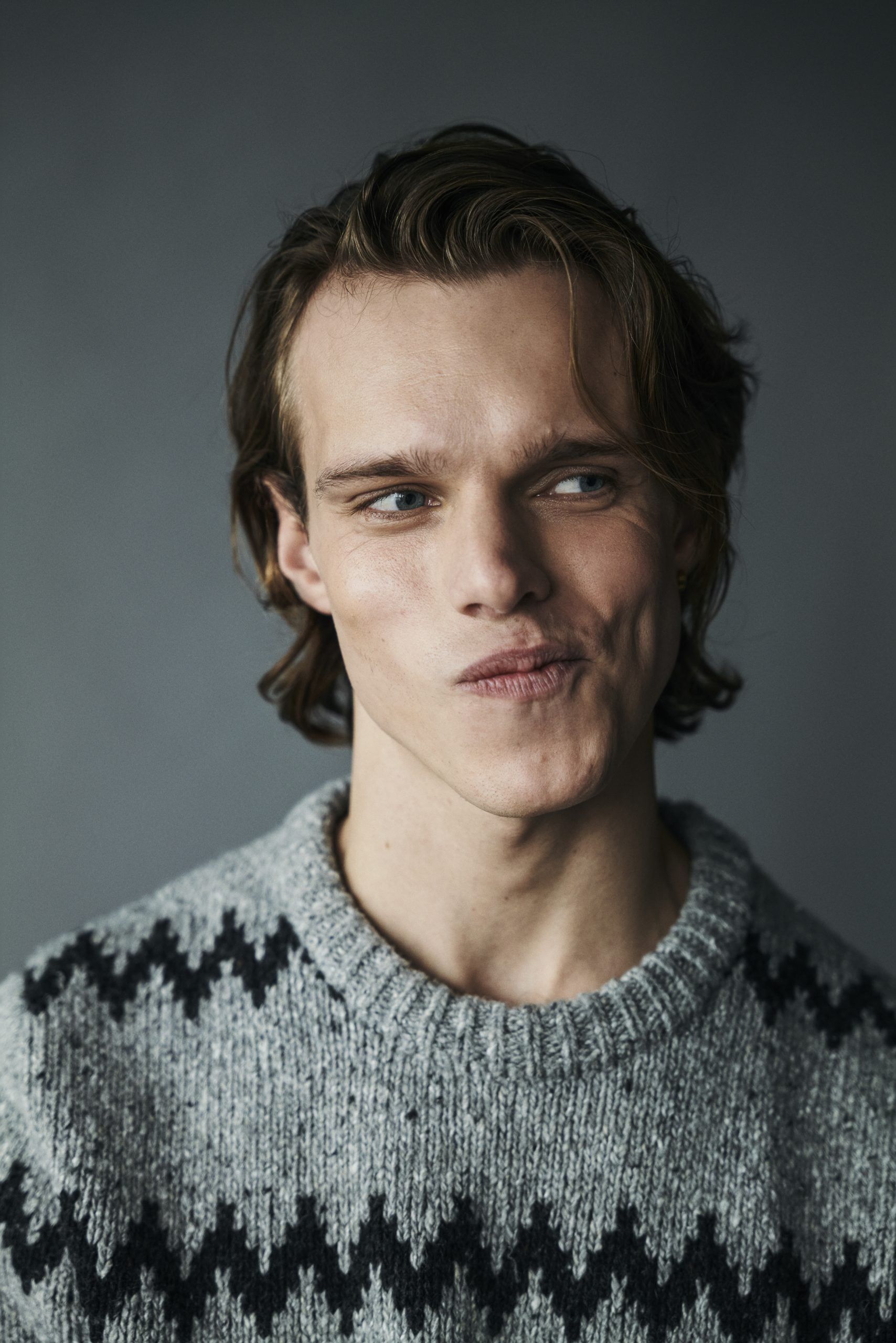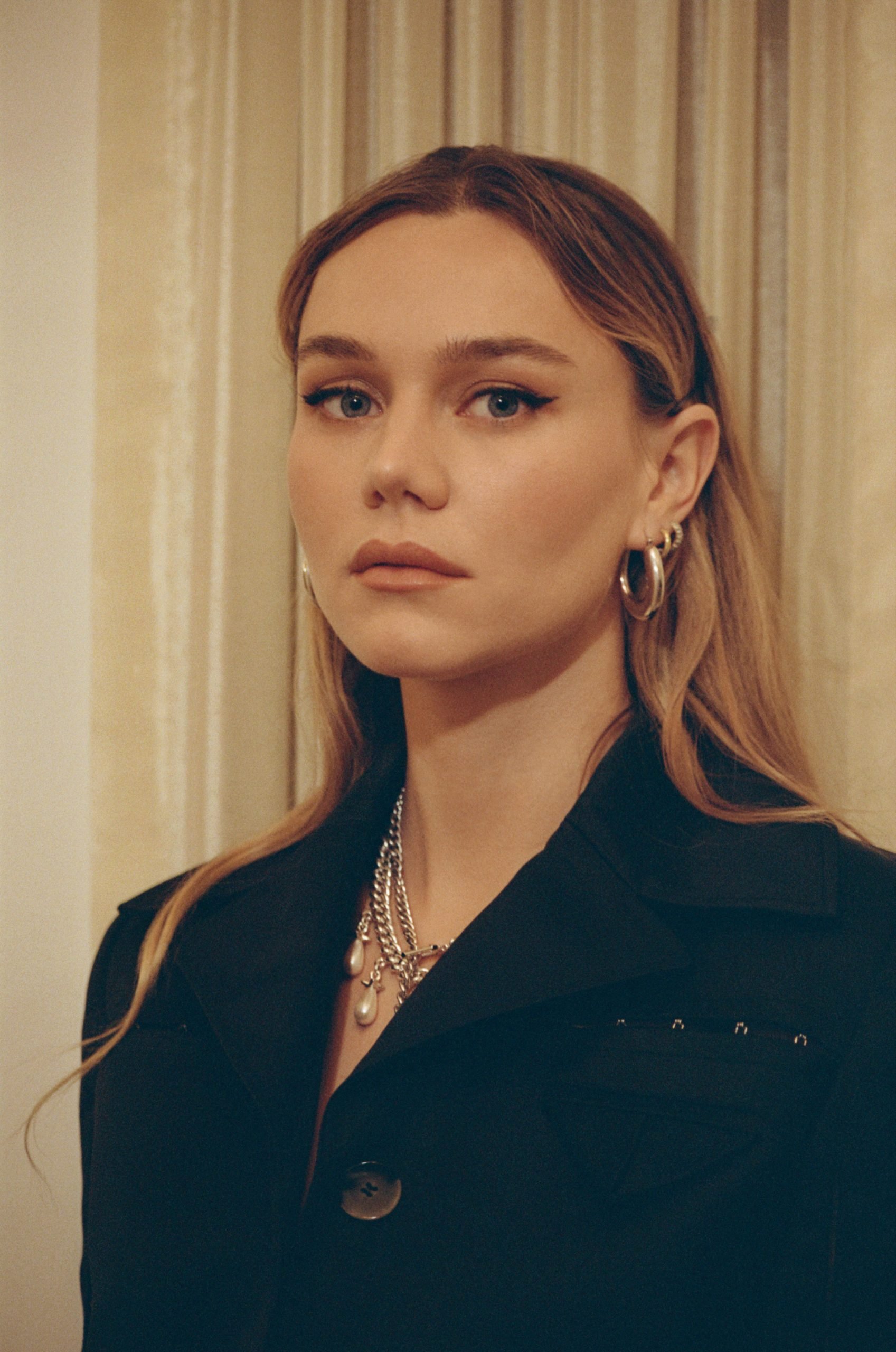
220 KID
How does someone with a master’s degree, a background playing rugby, and an ex-model turn into one of the biggest rising names in music? For producer/writer/DJ 220 KID, it literally took a marathon—both physically and figuratively.
If by chance you happened to catch a glimpse of a man dressed in pink running 220 miles for charity a few years ago, you likely saw Will AKA 220 KID. After going to university, getting a master’s, and in a job that paid well but didn’t fulfill him, Will was at a crossroads with what to do. After the loss of both his godfather and a close friend, Will decided to finally pursue what called to him for years: music. It’s been a long marathon of discovery for him, but since then he’s had multiple hit singles, collaborations with Gracey and JC Stewart, and has been deemed an artist to watch as we get closer to 2021.
There have always been suggestions that dance and electronic music isn’t a genre that can reach emotional depths, but the severity in which 220 KID explores his emotions and experiences is a direct rebuttal to those comments. Open about heartache, mental health, toxic masculinity and more, the music 220 KID crafts is not only confessional but deeply relatable. Never one to shy away from defying gender norms, 220 KID represents a shift by taking aim at those who brush off the importance of standing up for minorities and by blurring the lines between what it is to be a ‘man’ in both the music industry and in the world.
In a refreshing and candid chat with 1883, 220 KID talks about authenticity in music and allyship, his work with his collaborators, and the importance of staying true to himself in an industry that begs artists and their creative minds to conform.
To start: how does an ex-model, a 3-month rugby player, and someone with a Biology degree decide to get into music?
My dad’s friend put it well — he said “Your son is an idiot going into a career that’s going to mess up his life,” [laughs] I’ve always had this feeling about music and creating music and wanting to be a part of it. I’m sure you get it with writing and magazines, you can’t escape that feeling of needing to do something, can you?
Yeah, it feels like it’s ingrained within you.
You know if you’re meant to do something then no matter what you do, you’re always going to go back to that thing. I went to Uni and did a master’s degree and I thought I’d keep doing the ‘normal’ thing and eventually, the feeling of needing to do music would go away, but it didn’t. Then, my good friend and godfather both died within a month and I thought about how I was working a job I don’t like and pretending that is as good as it gets just because I was making good money. I just decided I would quit and do what I like to do which is music. I started modelling around the same time, too, because it was something I did when I was younger but I hated it due to nerves. I moved to Singapore on 7 days’ notice and started modelling there. I thought I’d give it a try and I would be able to know that, even if it didn’t work out, I would be satisfied knowing I gave it a go and here we are!
And after giving it a go, you’re starting to make it. You’ve had two huge hits this year — ‘Don’t Need Love’ with Gracey and Too Many Nights with JC Stewart. I saw ‘Don’t Need Love’ has reached 100 million total streams, congrats! Despite the year that the world has had, you’ve come into your own. How has it been for you?
Yeah, which is crazy. On my creative board at home, I wrote “get 1 million streams” on it a few years ago and that felt impossible. I was releasing songs that would do a maximum of 300,000 streams so it’s unreal. I had this conversation the other night with someone, they were describing my music and I feel like I finally reached a place where I knew what my music is. After the first single I was quite scared about what I was going to release next — should I listen to what I’ve been told to release or should I release what represents me? ‘Too Many Nights’ represented me; it wasn’t just taking the ingredients we took from ‘Don’t Need Love’ and replicating them, which is an easy thing to do. Since it’s been so well-received I know whatever I want to create and release I should listen to that gut feeling and do it, that’s what being a true artist is I think. All songs might not have the same success, in the same way, I think they all matter in the scheme of things; they don’t need to be a top ten because they are all a part of a process and as long as I know I’ve done the best of my ability and I’m building a bigger picture, that’s all that matters.
I think a lot of people get caught up in the need to have instant success. With things like TikTok, songs can blow up a year or two after they were released.
Yeah, exactly. My label is very unique in that they don’t just give a couple of weeks or months, they are in it for the long haul. We waited 9 months for ‘Don’t Need Love’ to take off, slugging it every day, and now look at it. We’re not going to release a new song until Spring so we’re going to keep pushing and see where it takes us, but that slow growth and delayed gratification is good for the soul! [Laughs]
When you’re writing and creating, do you have someone in mind who you want to collaborate with or is that something you figure out later?
Generally, that comes after because I work closely with my A&R which I don’t think a lot of people are lucky enough to have a relationship like I have with mine. When I’m making something we’ll be sharing videos and having conversations and I’ll give him a song and he’s so in tune with fresh new eyes and ideas. He’s taught me how to be more in tune with fresh musicians and seeking them out. We will work together on something and we’ll find someone and decide I want to work with them on a song. I just wrote a song on Friday and there’s a Swedish artist I want to sing it and their name kept coming up in a session I was in today, so hopefully, that happens for us! I say ‘us’ because I always call the 220 Kid stuff a team project. After all, it’s not just me.
Speaking of collaborators, you’ve grown close to JC Stewart, even going so far as to learn some choreography from Magic Mike. What was that like?
[Laughs} It was great. People kept asking who comes up with our content! I’ll just be in the shower and I’ll think of a stupid idea and send it to JC and he’ll beg me not to make him do it. He has a lot more pressure than I do, being a younger artist and all. If we can try and find an outlet to have fun we’re going to do it. It can be quite tough sometimes and we understand each other and what we’re going through, so we try to support one another. If I can get a day booked into learning Magic Mike dances, I’m going to do it!
Something I admire about your songs, in particular, is how deeply personal they are despite being within the dance and electronic genre, a genre many assume can’t get honest and vulnerable. I feel like your song Too Many Nights and the two versions of it show the importance of storytelling over the genre. When you’re writing and creating music, is genre something you’re actively thinking about or do you feel free to genre-bend as you see fit?
No, not trying to stick to a certain genre. I had this conversation with someone I was in the studio today about how I’m known for not writing that often. I’ll cancel studio sessions because, not to sound like a dick, if I don’t have anything to talk about I’m not going to waste people’s time. I have to go experience things, like what happened in ‘Too Many Nights’. It has to come from my life which makes it open and vulnerable, because what’s the point if it isn’t? You can get people much more involved in it if it is relatable because I’m human and that means other humans must have been through something similar. I don’t give a damn about what I have to conform to, I don’t care. I’m just going to write songs I want to make. If a song suits a house-country sound, that’s how it’s going to sound then. That’s just how it goes. As long as it works and connects with people, that’s all that matters.
I think it helps that you’re older, too. You aren’t bending just to make other people happy which people in their late teens and early 20s could easily do just to please.
Because I don’t care what people think. I don’t want to sound arrogant but there’s a good power that comes from growing up where you are over conforming and comparing yourself to others.

Authenticity is important to you, both as a songwriter and as an ally. I’m interested to hear about safe spaces at gigs — it’s something I wrote an article about, focusing on the different ways artists help shape safe spaces at their gigs, like Lewis Capaldi and his work with ‘Live live’, to help fans that suffer from social anxiety and mental health. There are still a lot of artists who don’t think about the atmosphere at their gigs. Why is it important for you?
Members of my family are in the community so from a very young age I was always brought up with an open view of it. I remember a couple of years ago I was at an event when I was no one in music and I was asking other people what I could do as a white straight man, the most privileged position, to help other people. They kept saying just do something that helps create a safe space because that affects everything. That sentence changed my mindset because when you’re in a position where you can make a difference, it’s selfish not to. If I know I could do one thing that would help someone, I’ll do it. In my old band, we made a music video with a real film camera at Pride in London and we filmed highlights of the day. I noticed a lot of brands would film parts of Pride that suited their agenda and aesthetic which isn’t always the right representation of the community. It doesn’t always capture the beauty and freedom of it. You can see in the faces of the crowd that they feel more accepted and they are just having a good time. I played at Manchester Pride and the song we played was about championing yourself and other people if you can and I got a message from someone that said they heard me say what I said and they started a Pride in their small town. That’s the power of giving a damn and that was just one day of filming and five minutes of talking, but that hopefully will have a long-lasting impact. It’s important to me to use my power and position for good and to help others. Why would I not want to play to an audience that felt safe and accepted?
Recently you started a scholarship at Exeter Uni for a high-achieving minority student. I know you kinda wanted to keep it on the down-low, but I’d love to talk to you about your decision to do that.
It came from the Black Lives Matter movement and having conversations with producer friends. They were talking about how we’re sick of people just posting on social media saying they are doing something when they are doing nothing. I always wanted to start a scholarship if I ever had the resources to do so, so I spoke to my university and asked how much it would be to start something. If I’m having such an incredible year, maybe I could help someone else that could also thrive, too. They gave me different payment plans and we figured out how I could pay for someone to go to university. It’s important to educate yourself about racism but going and helping is a different feeling. Now they might be able to get a better job in the future, which gives their family a different life, which changes a whole lineage or family. I don’t need a stupid watch or anything expensive, I have everything I need.
I’d like to talk to you a bit about mental health — I saw on Twitter that recently physical activity has helped you mentally. I know 2020 has been rough for a lot of people, especially in regards to mental health. Your tweet about using destructive coping mechanisms struck a chord with me — no one is talking about stuff like that. It sounds a bit cheesy, but where do you get the courage to be so open about stuff like that?
Again, I just don’t give a damn what people say! I spent too much of my life caring about what people think. I needed help and I got the push I needed to get help. I don’t want anyone to feel trapped and I don’t want anyone to look up to their role model and think their life is perfect because no one’s life is. The first time I posted stuff like that made me a bit nervous but now it’s second nature for me. If someone needs help, I’ll talk to them. I’ve got a friend who I’m speaking to after this call and he wants to talk about how he’s struggling a bit with his mental health and he’s a pint-drinking rugby player. It happens to everyone and being open about it helps other people come forward and get help instead of suffering in silence alone. I have moments where I’m struggling and because I was pushed to get help, I know that I can go to people and be open about my struggles and they’ll help. I just want to show people they can get help as well. It can be hard to get help with free public health services because there is such a list and it’s slow, so using connections at the personal and ground level is important. We have a couple of projects with brands coming to help make therapy more accessible to people who can’t afford it which I try to do to use these connections I have to help others.
I love your sense of style — the all pink outfit you just posted was amazing. You aren’t afraid of defying gender norms, much like the likes of Jaden Smith and Harry Styles. Although the music industry has made a lot of changes, I still feel like toxic masculinity exists in some aspects. When you first started pursuing music as a career, did you have to deal with any situations like that?
I’ve been around toxic masculinity from playing rugby and you can see how it affects people and their decision making. Circumstances and peer pressure impact people who are in vulnerable places that are just trying to be cool. When I was young, I wanted to paint my nails and do stuff like that but because it’s not “manly” I didn’t. You spend so long questioning how to dress or how to act or how to speak to look a certain way and it’s incredibly stressful. Nowadays it’s worse because kids have access to social media which is a whole other thing. I want to be a role model that encourages people to do whatever they wanted — paint your nails, dye your hair, just do it. There will be some kid in the middle of nowhere that will look up to you and see what you’re doing and it’ll leave a lasting impression on him. It’s how we break the toxic masculinity cycle. From what my band wears on-stage to my album art, I want all the different colours and gender-bending thing that could be subtle psychology that helps break down barriers.
That all pink outfit you wore recently was to die for. It feels like we’re slowly starting to make changes, especially in regards to breaking down the idea that colours and clothing and everything else is for certain genders.
Yeah, I finally feel like I’m being fully myself. In the past, I wasn’t sure who I was and I didn’t feel comfortable, but I’ve reached a point where I don’t care! [Laughs]
What else should people know about 220 Kid? I know you said on Twitter that you have some sad bops in store for us…
I was sitting in this exact seat, staring at the wall, listening to those sad bops! I said I don’t write a lot but I do write my best when I’m sad and going through something. I understand my ‘brand’ as an artist is to bring energy to the music but also bringing a story and the emotions behind the song. We’re exploring that a lot more. It’s quite a sad time in the world right now so if I can help people connect with their emotions, I’ll try to do that. The next thing I release will surprise everyone and it’s going to be amazing. I’m not allowed to say too much about the new music coming out but a cliffhanger is good, isn’t it?
Check out 220 KID below!
Photography by Jordan Rossi
Interview by Kelsey Barnes





